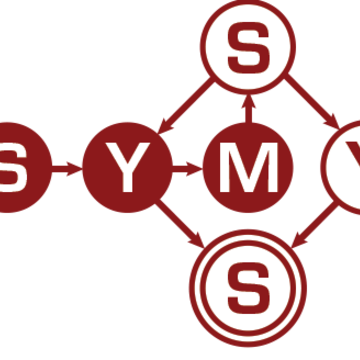SSP Forum: Radhika Koul and Filippos Nakas (M.S. Candidates)

The
Symbolic Systems Forum
presents
Affective Inference and Analogical Reasoning in Large Language Models
Radhika Koul (M.S. Candidate)
Symbolic Systems Program
and
Towards a New Logical Theory of Analogy via Abstraction
Filippos Nakas (M.S. Candidate)
Symbolic Systems Program
Tuesday, May 2, 2023
4:30-5:20 pm
Margaret Jacks Hall (Bldg. 460), Room 126
ABSTRACTS:
(1) Radhika Koul (M.S. Candidate), Symbolic Systems Program, "Affective Inference and Analogical Reasoning in Large Language Models" (Primary Advisor: Jay McClelland)
Humans are capable of recognizing similarities not only between single concepts but also between intricate real-world situations that involve multiple entities and relationships. When humans compare such situations, they pay special attention to higher-order relationships. On the other hand, they are also able to draw affective inferences from such real-world situations, such as which situations inspire attention and empathy, and to what degree. Large-language models have shown a variety of human-like content effects in logical reasoning and human-like performance in analogical reasoning. Preliminary research by Webb et al. suggests that GPT-3 and GPT-4 exhibit a similar sensitivity to higher-order relationships between situations as well. In this project, like Webb et al., we invoke stories to evaluate GPT-3’s performance on two different tasks: 1) its ability to draw affective inferences from a story, with prompt variations that would characterize it is either fictional, non-fictional or metafictional and 2) its ability to generate real-world situations analogous to the story in question. Stories will be drawn from http://fiftywordstories.com/.
(2) Filippos Nakas (M.S. Candidate), Symbolic Systems Program, "Towards a New Logical Theory of Analogy via Abstraction" (Primary Advisor: Michael Genesereth, Computer Science)
Analogical reasoning between two seemingly different domains often seems to be facilitated/mediated by a deeper abstraction that captures their commonalities. Furthermore, in many of these cases the correspondence that is established between elements of the two domains seems less like a flimsy heuristic and more like a mathematical fact resulting from the common abstract structure of the two domains. In this presentation, I will present the current results of my efforts in formulating a logical theory that captures this type of analogical reasoning. Its appeal will be demonstrated by its capacity for explaining intuitive analogies between popular board games.
A NOTE ON THE RECORDING OF EVENTS:
If a decision has been made in advance to record an event and to make it available for later public viewing, the event announcement will usually state this. In many cases, however, decisions to record, and/or to make a recording available publicly, are not finalized before an event is announced. Availability decisions for recordings are often subject to what speakers prefer after an event has concluded, among other considerations that may include usage rights for material used in an event, as well as the need for, and practicality of, editing. When recordings are made publicly available, they will be linked within the original event announcement on the Symsys website in the days or weeks following an event. Unfortunately, we cannot follow up on individual requests for more information about whether and when a recording may become available if it is not yet posted publicly.